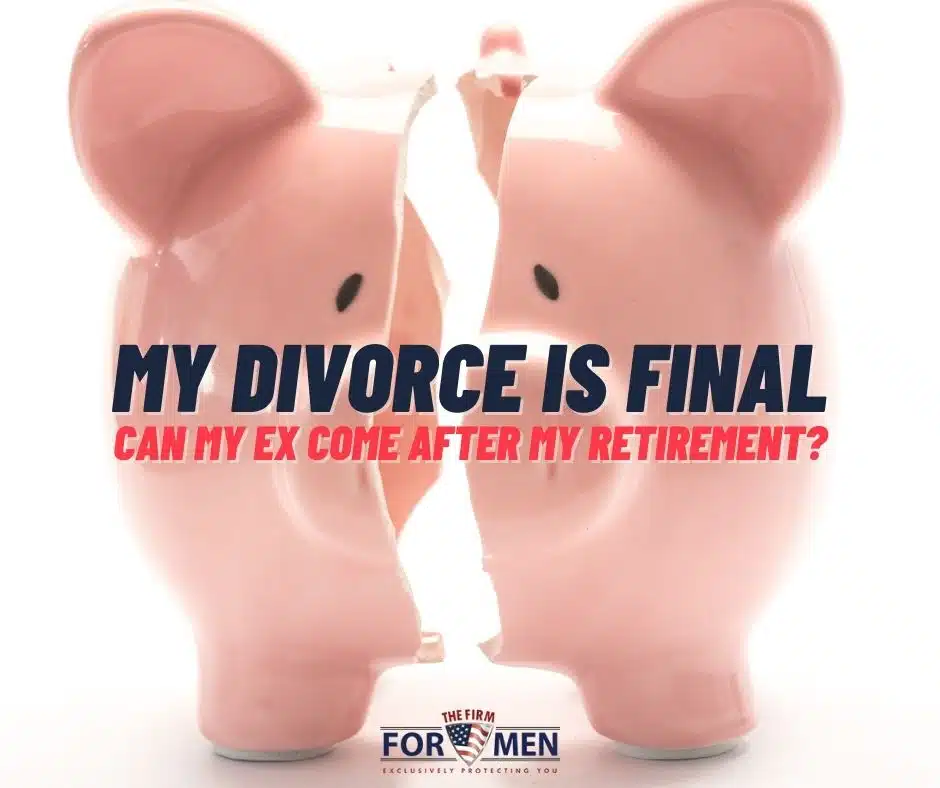Cursive handwriting is a lost art. That is why most of us have no idea what “cross the T’s and dot the I’s” originally meant. The connected letters of cursive required the writer to return to the completed word to, literally, cross the ascending t and place a dot over every i. At any rate, with divorce, every attorney knows to attend to all the details. Otherwise, clients could end up with more than a slap from a teacher’s ruler.
But What’s Missing from that Final Decree?
Most people are aware when something is, but often overlook when something is not. A roaming black bear gets our attention, but you may not notice several vanished bird feeders. In divorce, the wording in the final divorce decree is an assemblage of “boilerplate” legal verbiage, contributions from both parties’ attorneys, and the judge’s own writing. Once rendered by the judge, it is legally binding on both parties.
Forever.
Which is why the wording in that final divorce decree is absolutely critical for any Virginia man’s future financial security. If something is omitted—that is, it is neither spoken of in negotiations or written into the divorce decree, that omission could come back to haunt you.
Courts have ruled that, absent specific instructions as to assets or liabilities, any rediscovered assets (not assets deliberately hidden by either party) are to be equitably divided in keeping with existing law, such as Virginia Code § 20-107.3.
How Much of My Retirement Will She Get?
Perhaps you divorced at 40, without much consideration of your future plans. You continue to rise in your career, and then—perhaps through a windfall, perhaps from an unexpected inheritance—you discover you can retire early, at 55.
Now you are thinking about your retirement money, something neither you nor your spouse at the time gave much thought to.
Especially if you handled the divorce yourselves (thinking you could separate and divorce amicably), you may never have considered a complete property settlement. You may have both overlooked retirement accounts. This is one of many reasons why family law attorneys counsel against self-representation in divorce.
Faced with the pleasant prospect of early retirement, you feel like the numbers all work and you happily tell everyone your good news. Your ex-spouse hears your good news, too. It turns out to be very good news for her.
She finds an attorney and files a motion to get her chunk of your retirement savings. And, since nothing is written into the final divorce decree about those savings, she is entitled to a portion equal to the percentage of anything else you divvied up.
That means you could see up to half of the retirement account legally shift from your coffers to hers. To the particulars in our invented scenario in which you divorce at 40 and retire at 55:
- Your ex-wife is entitled to up to half of your retirement fund accrued during the time you were married; the courts reason that she intangibly contributed to your productivity, increasing your earning ability during the marriage
- The specific portion will be based on the percentage of other, similar, divided assets at the time of divorce
- Your ex-wife is not entitled to any of your retirement fund accrued from the time you divorced until you retired; after divorce, she had no effect on you and is not entitled to your retirement money from 40 onward
- Your ex-wife is not entitled to a portion of either the windfall or inheritance you received after you divorced
Inventory All Assets & CYA
Cover your … angles … in your final divorce decree by making certain to mention everything. It is the only way to protect against future pillaging of your assets, or future actions to make you take on her debts.
The best way to ensure every little nook and cranny of assets and liabilities is mentioned is to enlist the aid of an experienced family law attorney. Your attorney will grill you on all sorts of issues:
- Got any real estate?
- Retirement accounts?
- Artwork, jewelry, or antiques?
- Collectibles, cryptocurrency, or NFTs?
- Investment accounts?
- Motor vehicles?
- Small business?
- Savings accounts?
- Tools, machinery, or equipment?
- Intellectual property like literary works; Names, Images, Likenesses (NILs); inventions and patents; trade secrets; trademarks; or geographical indications (GIs)?
The point is, overlook nothing. Think hard about every conceivable investment, asset, debt, or piece of property connected to you. For good or bad, put it all down on paper. Sure, you might have to give a sizable chunk over to your ex, but that is the law. And she could come and get it later on anyway.
The Consequences of Hiding Assets
All of this assumes you did not purposely hide your retirement accounts from your ex-spouse during the divorce. If, years after the final divorce decree, evidence surfaces that you intentionally squirreled away assets, trying to shield them from equitable division, you have opened up a huge, expensive headache for yourself. Here’s a small sampling of consequences:
- Financial sanctions—you could forfeit the entire asset to your ex-spouse as punishment for hiding the asset
- Fines
- Jail time
Failing to disclose all your assets and debts is both a violation of fiduciary responsibility and perjury. In addition, deliberately making a bad investment to lower your assets is considered “marital waste,” akin to knowingly destroying a $3,000 antique roll top desk.
So, to review: cursive is dying out, black bears deserve their space, and you need a good divorce lawyer to write every little detail into the final divorce decree.
Details are our passion at The Firm For Men. Contact us today or telephone our offices at (757) 383-9184 to connect with a Virginia family law attorney. We fight hard to protect Virginia’s men in separation, divorce, and much more.

